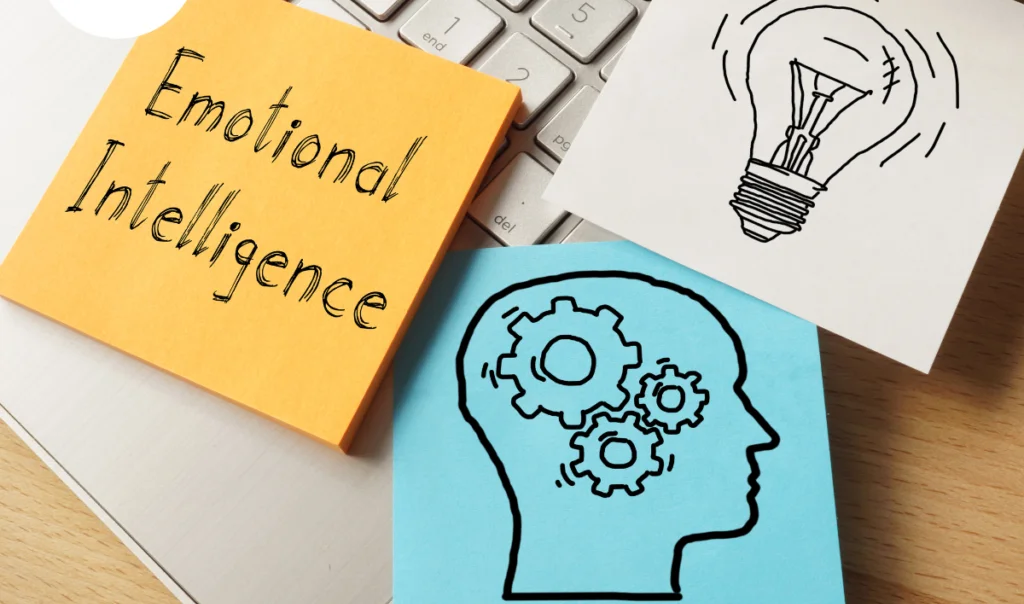
As classrooms become more digital, fast-paced, and globally connected, the ability to understand and manage emotions has become a core future-ready skill. Emotional intelligence (EQ) is no longer something “extra” — it’s a foundation for learning, relationships, personal growth, and mental well-being.
Students today handle academic pressure, online distractions, constant comparison on social media, and rapidly changing expectations. EQ helps them navigate all of it with clarity and resilience.
This cluster blog explores why emotional intelligence is essential for students and how it shapes their success in school and in the next decade.
1. Understanding Emotional Intelligence: More Than Just “Feelings”
EQ is the ability to recognize, understand, and manage one’s emotions, as well as understand the emotions of others.
For students, EQ becomes the bridge between what they know and how they apply that knowledge in real situations.
Emotional intelligence includes:
- Self-awareness
- Self-control
- Empathy
- Motivation
- Social awareness
These traits strengthen future-ready skills and help students thrive both academically and socially.
2. EQ Helps Students Make Better Decisions
Students with strong EQ think before reacting. They analyze situations instead of responding impulsively.
Emotional intelligence supports:
- Logical thinking during stress
- Better academic choices
- Healthier relationships
- Stronger judgment during peer pressure situations
This ties directly to critical thinking, a core part of next-decade learning.
3. EQ Builds Resilience and Stress Management
Today’s students handle more digital noise and pressure than any previous generation. EQ helps them manage their reactions and stay grounded.
Students with good EQ can:
- Stay calm during exams
- Manage digital distractions
- Handle criticism without breaking down
- Recover faster from setbacks
This connects strongly with healthy digital habits and digital discipline taught in modern education trends.
4. EQ Strengthens Communication and Social Skills
Communication isn’t just speaking or writing — it’s understanding tone, reading emotions, and responding respectfully.
Students with strong EQ naturally improve at:
- Active listening
- Interpersonal communication
- Team collaboration
- Conflict resolution
This links directly with the cluster topic on Communication Skills Students Must Master, allowing smooth internal linking.
5. EQ Encourages Empathy: A Must in a Global Classroom
As students interact with classmates from different cultures, backgrounds, and perspectives, empathy becomes essential.
Empathy helps students:
- Respect differences
- Support struggling peers
- Understand global viewpoints
- Build deeper friendships
This supports digital citizenship mindset and responsible behavior online and offline.
6. EQ Enhances Academic Performance
Students with higher EQ often perform better in school because they manage time well, stay motivated, communicate with teachers, and handle pressure effectively.
EQ helps students:
- Set goals
- Stay consistent
- Understand feedback
- Improve focus despite digital distractions
It also works beautifully alongside AI literacy, because emotionally intelligent students use AI tools more responsibly.
7. EQ Improves Classroom Collaboration
Group projects are becoming a big part of future-ready schools. EQ makes students better teammates.
Emotionally intelligent students can:
- Share tasks fairly
- Appreciate each other’s strengths
- Handle disagreements calmly
- Keep the group motivated
Collaboration is one of the most important skills for the next decade, and EQ strengthens it naturally.
8. EQ Builds Leadership From a Young Age
Leadership in the next decade will require empathy, clarity, calmness, and understanding — qualities that come directly from emotional intelligence.
Students with strong EQ become:
- Confident decision-makers
- Better listeners
- Fair leaders
- Reliable teammates
Great leaders are created through EQ, not just academic success.
9. EQ Supports Mental Health and Well-Being
With rising mental health challenges among students, EQ becomes a protective factor.
It helps students:
- Recognize early signs of stress
- Ask for help when needed
- Understand their emotional triggers
- Avoid unhealthy coping behaviors
This creates a strong emotional foundation for the future.
10. EQ Prepares Students for the Next Decade of Change
The next decade will bring unpredictable shifts — evolving technology, AI-driven workplaces, and constant innovation. Emotional intelligence helps students stay adaptable and confident.
Emotionally strong students can:
- Accept change faster
- Handle uncertain situations
- Stay motivated through challenges
- Build healthier relationships
EQ is one of the essential future-ready skills for the 2030s and beyond.
Final Thoughts
Emotional intelligence shapes how students think, behave, and grow. It strengthens communication, supports digital habits, improves collaboration, and enhances academic success. Most importantly, EQ prepares students for a world where automation and AI are rising, but human connection remains irreplaceable.
By developing emotional intelligence early, students become more confident, compassionate, and resilient — ready for both school and the rapidly evolving future.
